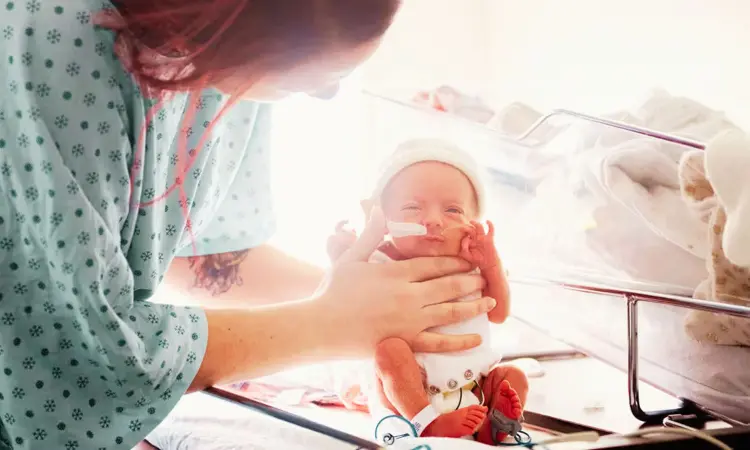- Home
- Medical news & Guidelines
- Anesthesiology
- Cardiology and CTVS
- Critical Care
- Dentistry
- Dermatology
- Diabetes and Endocrinology
- ENT
- Gastroenterology
- Medicine
- Nephrology
- Neurology
- Obstretics-Gynaecology
- Oncology
- Ophthalmology
- Orthopaedics
- Pediatrics-Neonatology
- Psychiatry
- Pulmonology
- Radiology
- Surgery
- Urology
- Laboratory Medicine
- Diet
- Nursing
- Paramedical
- Physiotherapy
- Health news
- Fact Check
- Bone Health Fact Check
- Brain Health Fact Check
- Cancer Related Fact Check
- Child Care Fact Check
- Dental and oral health fact check
- Diabetes and metabolic health fact check
- Diet and Nutrition Fact Check
- Eye and ENT Care Fact Check
- Fitness fact check
- Gut health fact check
- Heart health fact check
- Kidney health fact check
- Medical education fact check
- Men's health fact check
- Respiratory fact check
- Skin and hair care fact check
- Vaccine and Immunization fact check
- Women's health fact check
- AYUSH
- State News
- Andaman and Nicobar Islands
- Andhra Pradesh
- Arunachal Pradesh
- Assam
- Bihar
- Chandigarh
- Chattisgarh
- Dadra and Nagar Haveli
- Daman and Diu
- Delhi
- Goa
- Gujarat
- Haryana
- Himachal Pradesh
- Jammu & Kashmir
- Jharkhand
- Karnataka
- Kerala
- Ladakh
- Lakshadweep
- Madhya Pradesh
- Maharashtra
- Manipur
- Meghalaya
- Mizoram
- Nagaland
- Odisha
- Puducherry
- Punjab
- Rajasthan
- Sikkim
- Tamil Nadu
- Telangana
- Tripura
- Uttar Pradesh
- Uttrakhand
- West Bengal
- Medical Education
- Industry
Aminophylline Shows Short-Term Benefits in Asphyxiated Newborns, but Fails to Prevent Acute Kidney Injury: Study

India: A recent randomized open-label controlled trial has explored the potential benefits of aminophylline in preventing acute kidney injury (AKI) in term neonates suffering from severe perinatal asphyxia.
The study published in the Journal of Tropical Pediatrics revealed that administering a single dose of aminophylline (5 mg/kg) within the first hour of life to severely asphyxiated term neonates may temporarily boost urine output. However, it does not significantly reduce the overall incidence of AKI.
Acute kidney injury is a significant concern for neonates who experience severe perinatal asphyxia, as it can lead to long-term complications and increased mortality rates. The effectiveness of aminophylline in preventing or mitigating renal dysfunction in these neonates remains a topic of debate. In light of this, Arindam Ghosh, Department of Neonatology, Medical College and Hospital, Kolkata, West Bengal, India, and colleagues set out to investigate whether aminophylline, as adjunctive therapy, is more effective than standard care alone in preventing acute kidney injury in severely asphyxiated term neonates. Additionally, the study aimed to assess changes in other renal parameters associated with this treatment.
For this purpose, the researchers conducted an open-label randomized clinical trial involving term neonates with severe asphyxia (n = 41). These infants received an intravenous dose of aminophylline at 5 mg/kg within the first hour after birth, alongside standard care for birth asphyxia. The control group (n = 40) received standard care alone.
The study monitored and compared various parameters, including daily urine output, weight, serum creatinine levels, renal function status, and complications during the first five days of life. Data analysis was performed using the Statistical Package for the Social Sciences (SPSS) version 25.
Key observations from the study are as follows:
- Approximately 24.39% of neonates in the aminophylline group developed acute kidney injury, compared to 35.0% in the control group.
- While urine output was generally higher in the aminophylline-treated newborns than in those receiving standard care, this difference did not reach statistical significance.
- The most pronounced variations in urine output were noted on the second and third postnatal days.
- The changes in plasma creatinine levels between the two groups during this period were also not statistically significant.
"Based on our study findings, we recommend that aminophylline therapy in this context should be restricted to research settings and not employed as a preventive measure," the researchers concluded.
Reference:
Munian, D., Dutta, S., Ghosh, A., & Saha, R. (2024). Role of aminophylline in prevention of acute kidney injury in term neonates with severe perinatal asphyxia: A randomized open-label controlled trial. Journal of Tropical Pediatrics, 70(6). https://doi.org/10.1093/tropej/fmae036
Dr Kamal Kant Kohli-MBBS, DTCD- a chest specialist with more than 30 years of practice and a flair for writing clinical articles, Dr Kamal Kant Kohli joined Medical Dialogues as a Chief Editor of Medical News. Besides writing articles, as an editor, he proofreads and verifies all the medical content published on Medical Dialogues including those coming from journals, studies,medical conferences,guidelines etc. Email: drkohli@medicaldialogues.in. Contact no. 011-43720751


